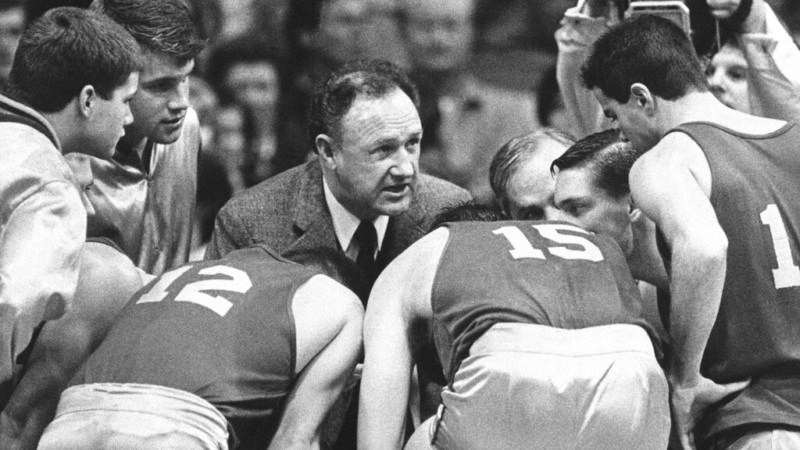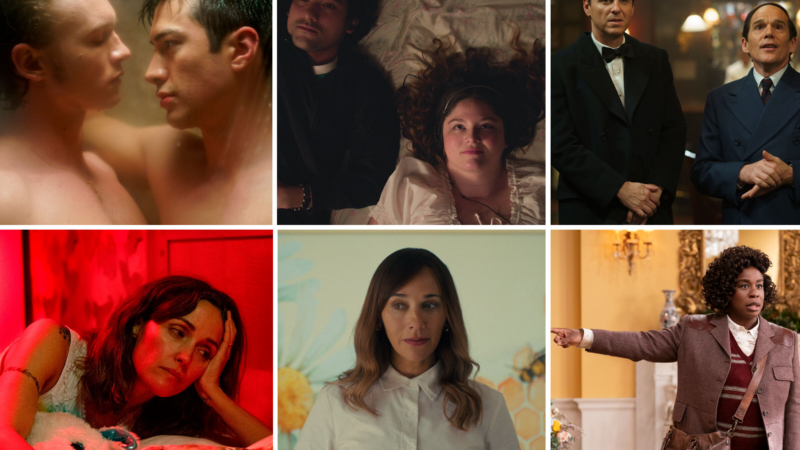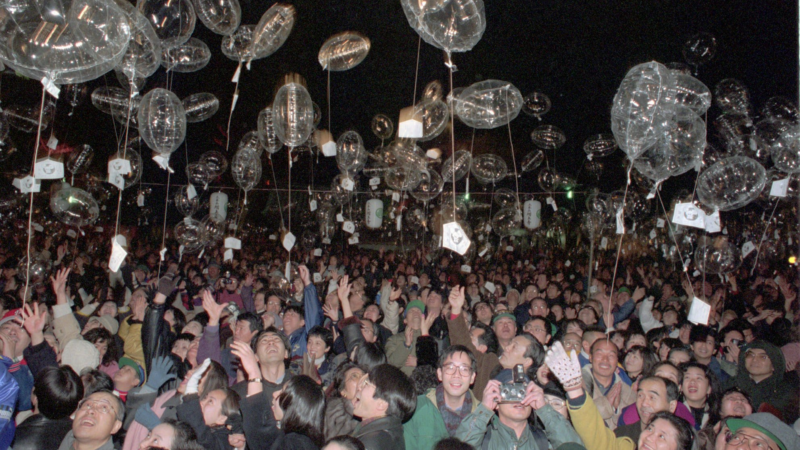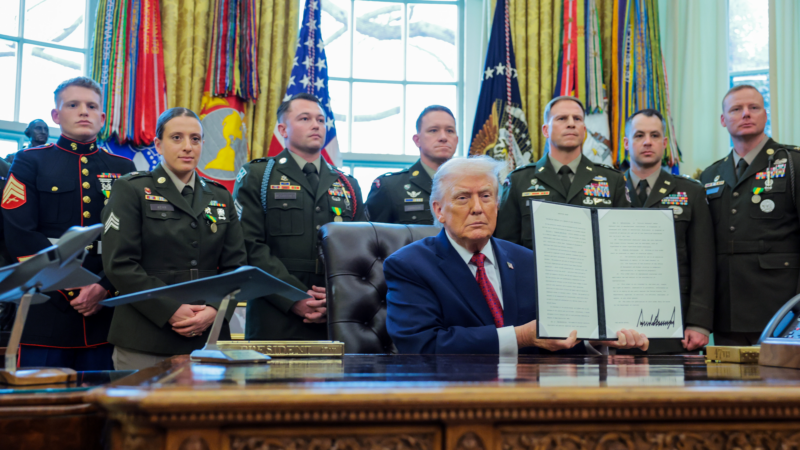Opinion: Remembering Gene Hackman
The actor Gene Hackman has died, at the age of 95. He was found this week in his home in Santa Fe, along with his wife, Betsy Arakawa, and a family dog. Authorities are still trying to figure out what happened.
Gene Hackman was long retired from Hollywood, but the characters he played in his four decade career will stick with us. It felt like he could turn himself into almost anyone.
He was a barbarous and riotous cop in The French Connection; a blunt-headed, bank robbing brother alongside Warren Beatty and Faye Dunaway in Bonnie and Clyde; a savage small-town sheriff in Clint Eastwood’s Unforgiven; and a minister who leaps through flames to lead passengers to safety in The Poseidon Adventure, even as the man of God himself is left to dangle from a valve-wheel.
Gene Hackman played Superman’s arch-villain, Lex Luthor, with a comic glint. “There’s a strong streak of good in you, Superman,” he tells Christopher Reeve. “But then nobody’s perfect…”
You might see why Gene Hackman would try to find a life playing other people. His father used to beat him, and left the family when Gene was 13. At 16, he lied about his age and ran off to join the Marines.
“I just had to get out,” he once told the Los Angeles Times.
He played a son who looks back on a difficult relationship with his father in Robert Anderson’s I Never Sang For My Father, which Gene Hackman opens by saying, “Death ends a life, but it does not end a relationship, which struggles on in the survivor’s mind…”
He was friends with Dustin Hoffman when they were young actors at the Pasadena Playhouse in the 1950’s, and voted “the least likely to succeed.” Gene Hackman, of course, went on to win two Oscars, nine Golden Globes, and many other awards; his friend has done pretty well, too.
Gene Hackman leaves a lot of memories for us movie-goers. I think one that sinks most into me is in Hoosiers. He plays a strict basketball coach who spurs a small-town high school team to glory. But he sets aside all his macho bluster to tell them as they take the court for the last time, “I love you guys.”
You can feel how hard, and how necessary it is for that flinty coach to force himself to say that. Gene Hackman could utter just four simple words, and make a great film moment.
Transcript:
SCOTT SIMON, HOST:
The actor Gene Hackman has died at the age of 95. He was found this week in his home in Santa Fe along with his wife, Betsy Arakawa, and a family dog. Authorities are still trying to figure out what happened.
Gene Hackman was long retired from films, but the characters he played in his four-decade career will stay with us. It felt like he could turn himself into almost anyone. He was a barbarous and riotous cop in “The French Connection,” a blunt-headed bank-robbing brother alongside Warren Beatty and Faye Dunaway in “Bonnie And Clyde,” a savage small-town sheriff in Clint Eastwood’s “Unforgiven” and a minister who leaps through flames to lead passengers to safety in “The Poseidon Adventure,” even as the man of God himself is left to dangle from a valve wheel. Gene Hackman played Superman’s archvillain, Lex Luthor, with a comic glint. There’s a strong streak of good news, Superman, he tells Christopher Reeve, but then nobody’s perfect.
You might see why Gene Hackman would try to find a life playing other people. His father used to beat him and left the family when Gene was 13. At 16, he lied about his age and ran off to join the Marines. I just had to get out, he once told the Los Angeles Times. He played a son who looks back on a difficult relationship with his father in Robert Anderson’s “I Never Sang For My Father,” which Gene Hackman opens by saying death ends a life, but it does not end a relationship, which struggles on in the survivor’s mind.
He was friends with Dustin Hoffman when they were young actors at the Pasadena Playhouse in the 1950s and voted the least likely to succeed. Gene Hackman, of course, went on to win two Oscars, nine Golden Globes and many other awards. His friend has done pretty well, too.
Gene Hackman leaves a lot of memories for his movie-goers. I think one that sinks most into me is in “Hoosiers.” He plays a strict basketball coach who spurs a small-town high school team to glory, but he sets aside all his macho bluster to tell them as they take the court for the last time, I love you guys. You can feel how hard and how necessary it is for that flinty coach to force himself to say that. Gene Hackman could utter just four simple words and make a great film moment.
(SOUNDBITE OF ALLAH-LAS’ “HOUSTON”)
Out with the mayo: How Ukrainians reclaim holiday food
For many people from former Soviet countries, New Year's is a big holiday feast time. A Ukrainian restaurant in Washington gives NPR a taste of what's on the menu.
His brother’s mental illness isolated his family. Now he’s helping other caregivers
When it comes to serious mental illness, family caregivers are crucial partners. But often, they must fend for themselves. A new solution offers them support.
Farmers are about to pay a lot more for health insurance
Tariffs, inflation, and other federal policies have battered U.S. farmers' bottom lines. Now many farmers say the expiration of federal health care subsidies will make their coverage unaffordable.
50 wonderful things from 2025
Each year, critic Linda Holmes looks back on the year and compiles a list of the things that brought her joy.
Why do we make New Year’s resolutions? A brief history of a long tradition
One of the earliest mentions of New Year's resolutions appeared in a Boston newspaper in 1813. But the practice itself can be traced back to the Babylonians.
In one year, Trump pivots fentanyl response from public health to drug war
Experts say Biden's focus on addiction health care saved tens of thousands of lives and slowed fentanyl smuggling. Trump scrapped Biden's approach in favor of military strikes.








